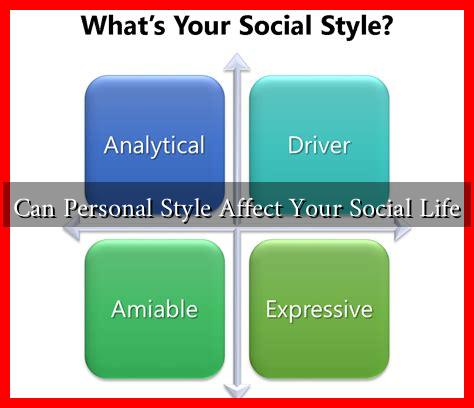-
Table of Contents
Can Personal Style Affect Your Social Life?
In a world where first impressions are often formed in mere seconds, personal style plays a crucial role in shaping our social interactions. From the clothes we wear to the accessories we choose, our personal style can significantly influence how we are perceived by others. This article explores the intricate relationship between personal style and social life, examining how fashion choices can impact social dynamics, relationships, and even professional opportunities.
The Psychology of Personal Style
Personal style is not just about aesthetics; it is a form of self-expression that communicates our identity, values, and social status. According to a study published in the journal *Psychology of Popular Media Culture*, individuals often make snap judgments about others based on their appearance. These judgments can include assumptions about personality traits, social status, and even intelligence.
- First Impressions: Research indicates that it takes only 7 seconds for someone to form an opinion about you based on your appearance.
- Social Signals: Clothing can signal belonging to a particular group or subculture, influencing social interactions.
- Confidence Boost: Wearing clothes that align with your personal style can enhance self-esteem and confidence, making social interactions more enjoyable.
Fashion and Social Dynamics
Fashion is inherently social. It reflects cultural trends and societal norms, and it can either facilitate or hinder social interactions. Here are some ways personal style can affect social dynamics:
- Group Identity: People often dress similarly to fit in with their social circles. For example, students in high school may adopt specific styles to align with popular groups.
- Networking Opportunities: In professional settings, dressing appropriately can open doors. A well-tailored suit may lead to networking opportunities that a casual outfit might not.
- Social Media Influence: Platforms like Instagram and TikTok have made personal style more visible, allowing individuals to curate their image and connect with like-minded people.
Case Studies: The Impact of Personal Style
Several case studies illustrate the profound impact of personal style on social life:
- The Power of Uniforms: A study by the University of California found that students who wore uniforms reported feeling a stronger sense of belonging and community compared to those who did not.
- Fashion in the Workplace: A survey by *CareerBuilder* revealed that 55% of employers are less likely to promote an employee who dresses poorly, highlighting the importance of professional attire.
- Social Media Influencers: Influencers like Chiara Ferragni and Aimee Song have built their brands around personal style, showcasing how fashion can create social capital and influence.
Statistics on Personal Style and Social Life
Understanding the statistics surrounding personal style can provide further insight into its impact on social life:
- According to a survey by *The Harris Poll*, 78% of people believe that how someone dresses affects their social life.
- A study published in *Fashion Theory* found that individuals who dress well are perceived as more competent and trustworthy.
- Research from *The Journal of Experimental Social Psychology* indicates that people who dress in a way that aligns with their self-image report higher levels of happiness and social satisfaction.
Conclusion: The Takeaway
Personal style is more than just a reflection of individual taste; it is a powerful tool that can shape social interactions and influence perceptions. From enhancing self-confidence to facilitating networking opportunities, the way we present ourselves can significantly impact our social lives. As society continues to evolve, understanding the nuances of personal style will remain essential for navigating social dynamics effectively.
In summary, whether you are dressing for a job interview, a social gathering, or simply expressing your individuality, your personal style can open doors and create connections. Embrace your unique style, and remember that it is not just about the clothes you wear but how they make you feel and how they influence your interactions with others.
For more insights on personal style and its impact on social life, you can explore resources like Psychology Today.

